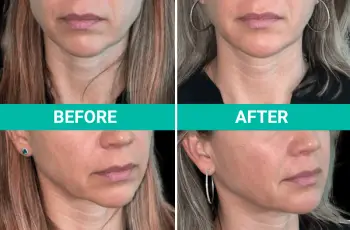
How Muslim Women Keep Their Skin Hydrated During Ramadan: Expert Advice & Community Wisdom
Ramadan, the ninth month of the Islamic calendar, holds deep spiritual significance for Muslims across the world, representing a time of heightened prayer, self-discipline, and communal reflection.
During this sacred month, from sunrise to sunset, Muslims fast from all food and drink—including water—which can range from 12 to 16 hours depending on the season and region.
Fasting during Ramadan serves as a profound act of devotion, but it also introduces physical changes, including the body’s hydration levels and the overall condition of the skin.
One of the most common effects of fasting is dehydration, which can manifest on the skin in the form of dryness, dullness, sensitivity, or a loss of elasticity and glow.
Muslim women across the globe have adapted their skincare rituals to maintain hydration during these fasting hours, preserving their skin’s health without compromising spiritual duties.
We spoke with dermatologists, beauty experts, and Muslim women who fast to understand how they keep their skin balanced, resilient, and nourished during the month of Ramadan.
Why Skin Hydration Matters During Fasting Periods
Your skin is your body’s largest organ, and hydration plays a crucial role in maintaining its protective barrier, elasticity, and smooth appearance—especially when external intake is limited.
Dr. Kiran Mian, a New York-based board-certified dermatologist, explains that “well-hydrated skin looks plump and radiant, while dehydrated skin can appear dull, saggy, or more reactive.”
She likens it to a balloon: when full, it’s firm and taut; when deflated, it becomes slack and less vibrant—just like skin that lacks proper moisture from within and without.
Since skin cells are composed of about 75% water, a decrease in fluid intake—even for religious reasons—can significantly affect skin’s tone, smoothness, and responsiveness to products.
During Ramadan, it’s common for women to notice flaky patches, tightness in the cheeks, increased sensitivity, uneven tone, and more pronounced fine lines due to reduced hydration.
Despite these temporary skin challenges, there are many effective ways to retain moisture and glow throughout the month using topical care and intentional lifestyle choices.
Topical Skincare Tips Recommended by Dermatologists
Even if water consumption is restricted during fasting hours, applying hydrating products topically can replenish the skin barrier and prevent visible signs of dehydration or irritation.
1. Opt for a Cream-Based, Non-Stripping Cleanser
Avoid harsh foaming cleansers or physical exfoliants that can dehydrate and weaken the skin barrier—especially when internal hydration is already low.
Instead, switch to a gentle, cream-based formula that removes dirt while maintaining essential lipids and moisture in the skin’s outermost layers.
Recommended: CeraVe Hydrating Facial Cleanser, which contains hyaluronic acid and ceramides to support the moisture barrier without over-drying.
2. Embrace Humectants and Water-Binding Ingredients
Humectants draw water into the skin and keep it there—even when you’re not drinking as much throughout the day—making them key allies during Ramadan.
Look for powerhouse ingredients such as hyaluronic acid, glycerin, panthenol, and squalane in your serums or moisturizers to visibly plump and hydrate.
Dimethicone, a silicone-based emollient, can also smooth and protect the skin without suffocating it or causing breakouts.
Recommended: Kiehl’s Ultra Facial Cream with squalane or La Roche-Posay’s Cicaplast Baume B5 for lightweight yet lasting hydration.
3. Keep Thermal Water Sprays on Hand for Mid-Day Refreshing
While these sprays don’t replace internal hydration, they can instantly soothe, cool, and soften the skin—especially helpful on warmer days or during periods of physical activity.
Avene Thermal Spring Water Spray, enriched with minerals and antioxidants, can reduce redness and deliver a noticeable hydration boost without violating fasting rules.
4. Never Skip Moisturizer—Morning and Night
Moisturizer helps lock in hydration and should always follow cleansing and serums—especially before sleeping and after Suhoor (the pre-dawn meal).
Choose a formula with both humectants (to draw moisture in) and occlusives like shea butter or petrolatum to trap hydration for longer.
5. Minimize Actives That Can Cause Sensitivity
Skin can become more reactive during fasting due to dehydration, so consider reducing the frequency of retinoids, exfoliating acids, or acne treatments.
Alternatively, swap stronger actives for gentler ingredients like niacinamide, lactic acid, or bakuchiol to support clarity without over-stressing your skin.
6. Sleep with a Humidifier to Offset Overnight Dryness
For those in dry or air-conditioned environments, using a humidifier at night can keep skin from drying out while you sleep after Suhoor or before Taraweeh prayers.
This subtle environmental shift can make a noticeable difference in skin smoothness and plumpness by morning, helping it retain hydration longer.
Skin Rituals From Muslim Women Who Observe Ramadan
While expert advice is valuable, hearing from real Muslim women provides insight into how skincare is practiced within the rhythm and reality of fasting life.
Sahar Kariem – Aspiring Stylist, New York City
Sahar prefers a minimal yet high-performing regimen, using Neutrogena’s Hydro Boost Water Gel twice a day to keep her skin visibly soft and refreshed.
“I don’t sleep regularly during Ramadan, and my face shows it,” she shares. “A brightening clay mask with Vitamin C helps revive my tired skin and gives me an instant glow boost.”
Narjis Hussain – Modest Fashion Influencer, Chicago
Narjis balances exfoliation and deep hydration, exfoliating twice a week with a gentle enzyme scrub and following up with a hydrating sheet mask or cream.
“Since I can’t drink water during the day, I use lip balm religiously—my lips chap quickly, so I apply throughout the day and always before bed,” she notes.
She also treats herself to a hydrating facial at the beginning or end of Ramadan, saying it “resets my skin and allows everything else to work better afterward.”
The Role of Nutrition in Skin Hydration
Skincare isn’t just topical—internal hydration and nutrition play a crucial role, especially during limited eating and drinking windows in Ramadan.
Focus on water-rich foods and hydrating beverages during Iftar and Suhoor to compensate for the long hours of fasting ahead.
Great options include watermelon, cucumber, tomatoes, zucchini, and leafy greens, which naturally hold a high percentage of water.
Start meals with soups or broths to gently hydrate and ease digestion, followed by slow-digesting grains like oats soaked in milk or almond milk.
Chia seeds are another hydration powerhouse, absorbing up to 10 times their weight in water and offering sustained moisture and fiber.
Limit caffeine, as it acts as a diuretic and may accelerate water loss, and try to avoid salty or heavily processed foods that can dehydrate you further.
Aim to sip 6–8 glasses of water between Iftar and Suhoor, pacing your intake throughout the night rather than consuming too much in one sitting.
Stress and Sleep: The Hidden Influencers on Skin
Changes in prayer schedules and sleep cycles during Ramadan can raise cortisol levels and disrupt your skin’s natural regenerative rhythm.
Reduced sleep may contribute to puffiness, dullness, or breakouts, especially when combined with stress or skipped skincare steps.
Try to schedule short rest periods or naps throughout the day to help your body and skin recover and maintain resilience.
Incorporate relaxing activities like facial massage, journaling, or prayer-based meditation to lower stress hormones and create calm.
Soothing nighttime rituals—such as applying a calming face oil, taking a warm shower, or sipping chamomile tea—can signal the body to wind down.
A Holistic View: Ramadan as a Time for Inner and Outer Nourishment
Caring for your skin during Ramadan is more than vanity—it’s an act of mindfulness and self-respect, reflecting the values of intention, balance, and compassion.
This month invites you to honor the body as an amanah (trust) from God, and maintaining your health—inside and out—is part of that sacred responsibility.
Spiritual glow doesn’t need to come at the expense of physical wellness—these two aspects can beautifully coexist with the right practices and mindset.
Whether you’re adjusting your skincare, rethinking hydration, or nurturing rest, the month of Ramadan is an ideal time to create meaningful, sustainable rituals.
In doing so, you not only reflect inner discipline but also foster lasting wellness—long after the fast has ended and Eid has begun.
Looking to Deepen Your Ramadan Skincare Journey?
Explore our guide to halal-certified skincare products designed for hydration and barrier care.
Subscribe to our wellness newsletter for expert insights and community-driven beauty stories.
Join our Instagram community to see how Muslim women across the globe care for their skin, soul, and spirit during the holy month.


